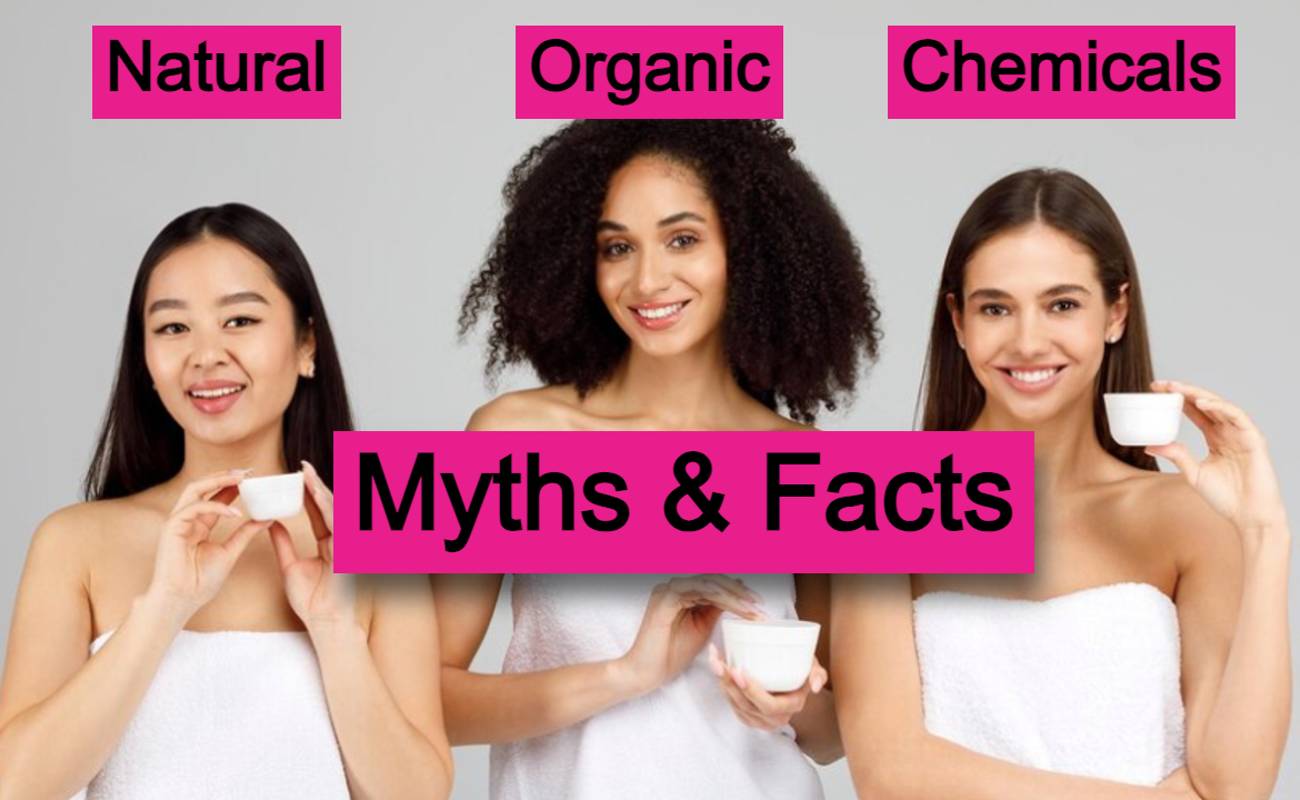Natural, Organic, and Synthetic Cosmetics: Myths, Facts, and a Comparative Analysis
In recent years, the beauty industry has seen a significant shift toward natural and organic products. Consumers are increasingly concerned about the ingredients they apply to their skin, leading to a surge in the popularity of natural and organic cosmetics. However, amidst the growing demand, a cloud of myths and misconceptions has also formed. This article aims to unravel the truth, dispel the myths, and provide a clear comparative analysis of natural, organic, and synthetic cosmetics.
Natural Cosmetics: The Pure Choice?
Fact: Natural cosmetics are derived from natural sources like plants, minerals, and animal by-products. They are minimally processed and free from synthetic chemicals.
Myth: Natural products are always safer and better for the skin.
While it's true that natural cosmetics often contain beneficial ingredients like botanical extracts and essential oils, "natural" doesn't automatically mean safer. Natural ingredients can still cause allergic reactions and skin sensitivities. For example, poison ivy is natural, but it's hardly skin-friendly. A study published in the Journal of Clinical and Aesthetic Dermatology found that natural ingredients can sometimes be as irritating or even more so than synthetic ones.
Fact: Natural products are eco-friendly.
Natural ingredients, when sourced sustainably, can indeed be eco-friendly. However, the environmental impact of harvesting natural resources must be carefully managed. Over-harvesting and poor agricultural practices can lead to biodiversity loss and habitat destruction.
Organic Cosmetics: The Gold Standard?
Fact: Organic cosmetics use ingredients grown without synthetic pesticides, fertilizers, or genetically modified organisms (GMOs).
Myth: Organic products are always 100% chemical-free.
"Organic" refers to the way ingredients are grown and processed, not the absence of chemicals. Organic products can still contain naturally occurring chemicals and preservatives to ensure product stability and safety. Certification bodies like USDA or COSMOS provide guidelines for organic labeling, ensuring that a significant percentage of ingredients meet organic standards.
Fact: Organic certification guarantees high quality and purity.
Organic certification does ensure that products meet specific standards, but it doesn't automatically translate to superior efficacy. The performance of a cosmetic product depends on its formulation and the combination of ingredients, whether organic or not.
Synthetic Cosmetics: The Science-Backed Option?
Fact: Synthetic cosmetics are formulated with man-made ingredients designed for specific functions, such as preservatives, emulsifiers, and active compounds.
Myth: Synthetic ingredients are harmful and cause long-term health issues.
Many synthetic ingredients are rigorously tested for safety and efficacy. For example, preservatives like parabens have been deemed safe in small concentrations by regulatory agencies such as the FDA. A review in the Critical Reviews in Toxicology concluded that parabens, within prescribed limits, do not pose a significant health risk.
Fact: Synthetic ingredients offer consistency and reliability.
Synthetic ingredients are produced under controlled conditions, ensuring consistent quality and performance. This predictability is crucial for formulating products that deliver specific benefits, such as anti-aging or acne treatment.
Comparative Analysis: Which Is Better?
- Safety and Efficacy:
- Natural: May offer gentle, skin-friendly options but can also cause allergies.
- Organic: Ensures fewer pesticides and synthetic chemicals but not necessarily superior performance.
- Synthetic: Provides reliable, tested ingredients but may include controversial additives.
- Environmental Impact:
- Natural: Potentially eco-friendly if sourced sustainably.
- Organic: Promotes sustainable farming practices but still requires resource management.
- Synthetic: Can reduce strain on natural resources but may involve non-renewable materials.
- Consumer Perception:
- Natural and Organic: Often perceived as safer and more ethical.
- Synthetic: Viewed with skepticism but backed by scientific research.
Myths and Facts: Bridging the Gap
Myth: Natural and organic products are free from all chemicals. Fact: All cosmetics, including natural and organic, contain chemicals; the difference lies in their source and processing.
Myth: Synthetic cosmetics are inferior and unsafe. Fact: Synthetic ingredients are often essential for product stability and effectiveness, with rigorous safety testing.
Key Takeaways: Making Informed Choices
Choosing between natural, organic, and synthetic cosmetics ultimately depends on personal preferences, skin type, and specific needs. While natural and organic products appeal to those seeking eco-friendly and minimally processed options, synthetic cosmetics offer consistency and scientifically backed benefits. Dispelling myths and understanding the facts can help consumers make informed decisions, ensuring they select products that are truly beneficial for their skin and lifestyle.
This balanced perspective not only informs but also engages readers, fostering a deeper understanding of the cosmetic products they use. With accurate, evidence-based information, consumers can confidently navigate the beauty aisle, making choices that align with their values and skincare goals.

